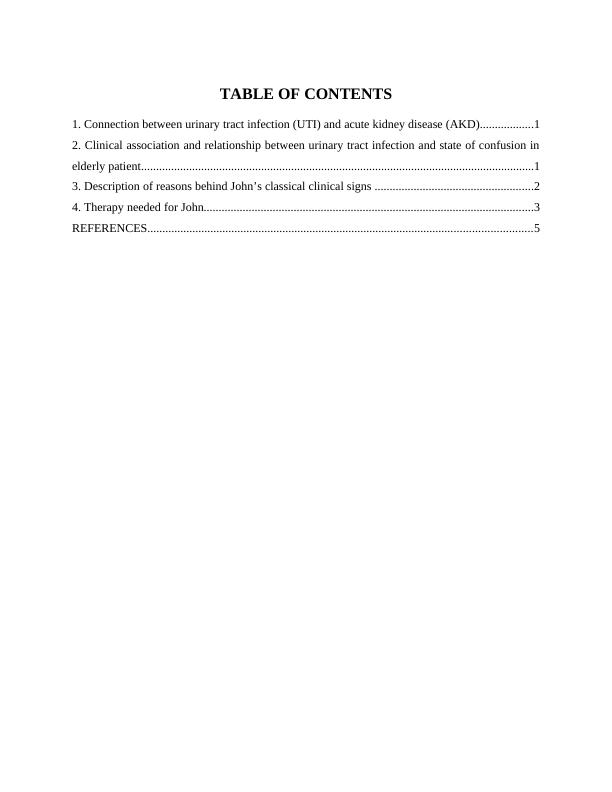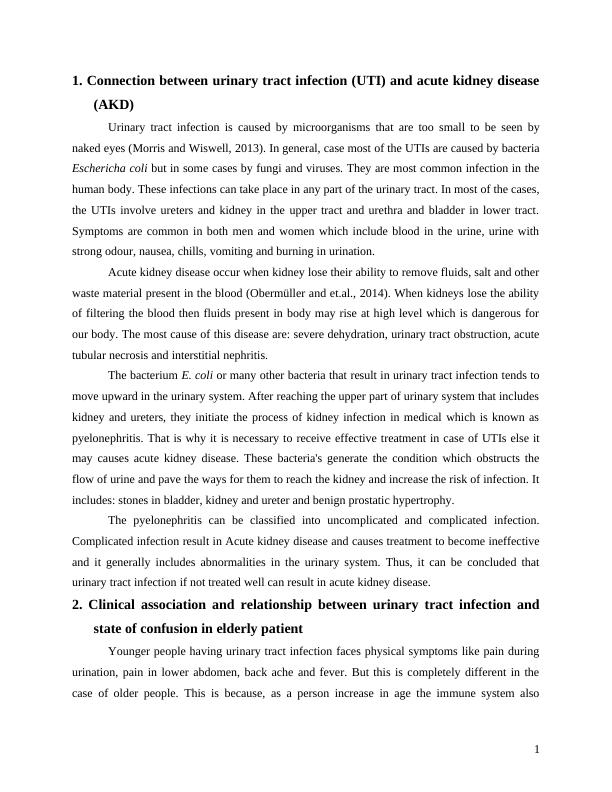Ask a question from expert
Connection between urinary tract infection (UTI) & acute kidney disease (AKD) : Case Study
7 Pages1893 Words65 Views
Added on 2020-10-04
Connection between urinary tract infection (UTI) & acute kidney disease (AKD) : Case Study
Added on 2020-10-04
BookmarkShareRelated Documents
End of preview
Want to access all the pages? Upload your documents or become a member.
Report of Introduction 2022
|2
|309
|49
Foundations of Professional Practice Assignment
|6
|2327
|58
Urinary Tract Infections in Older Persons- Report
|9
|2147
|231
UTI(Urinary Tract Infection) Case Study
|6
|1409
|529
Urinary Tract Infection (UTI) in Older People Report
|6
|2100
|48
Understanding the Pathogenesis of Urinary Tract Infection and Sepsis
|7
|2026
|1


